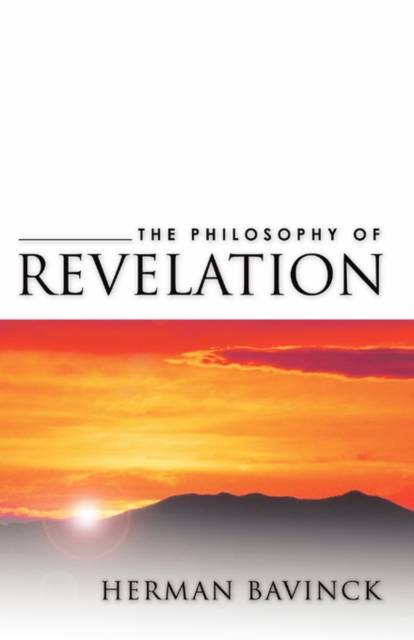
Door een staking bij bpost kan je online bestelling op dit moment iets langer onderweg zijn dan voorzien. Dringend iets nodig? Onze winkels ontvangen jou met open armen!
- Afhalen na 1 uur in een winkel met voorraad
- Gratis thuislevering in België vanaf € 30
- Ruim aanbod met 7 miljoen producten
Door een staking bij bpost kan je online bestelling op dit moment iets langer onderweg zijn dan voorzien. Dringend iets nodig? Onze winkels ontvangen jou met open armen!
- Afhalen na 1 uur in een winkel met voorraad
- Gratis thuislevering in België vanaf € 30
- Ruim aanbod met 7 miljoen producten
Zoeken
Omschrijving
In addition to exegetical, biblical, and systematic theology, there is room also for a philosophy of revelation which will trace the idea of revelation, both in its form and in its content, and correlate it with the rest of our knowledge and life, writes the author, one of the most distinguished Reformed theologians of the twentieth century. Theological thought has always felt the need of such a science. Thus Philosophy of Revelation, first published in 1909, is part of the same discipline and heritage as James Orr's 'The Christian View of God and the World' (1893) and Gordon Clark's 'A Christian View of Men and Things' (1952). Bavinck deals with the relationship between revelation and (in chapters 2-3) philosophy, (4) nature, (5) history, (6) religion, (7) Christianity, (8) religious experience, (9) culture, and (10) the future. He contends that the word cannot be explained without God, that the natural and social sciences presuppose metaphysics, and that none of the subjects under consideration here is intelligible or meaningful apart from special revelation.
Specificaties
Betrokkenen
- Auteur(s):
- Uitgeverij:
Inhoud
- Aantal bladzijden:
- 360
- Taal:
- Engels
Eigenschappen
- Productcode (EAN):
- 9781592443925
- Verschijningsdatum:
- 1/10/2003
- Uitvoering:
- Paperback
- Formaat:
- Trade paperback (VS)
- Afmetingen:
- 143 mm x 216 mm
- Gewicht:
- 439 g

Alleen bij Standaard Boekhandel
+ 97 punten op je klantenkaart van Standaard Boekhandel
Beoordelingen
We publiceren alleen reviews die voldoen aan de voorwaarden voor reviews. Bekijk onze voorwaarden voor reviews.











